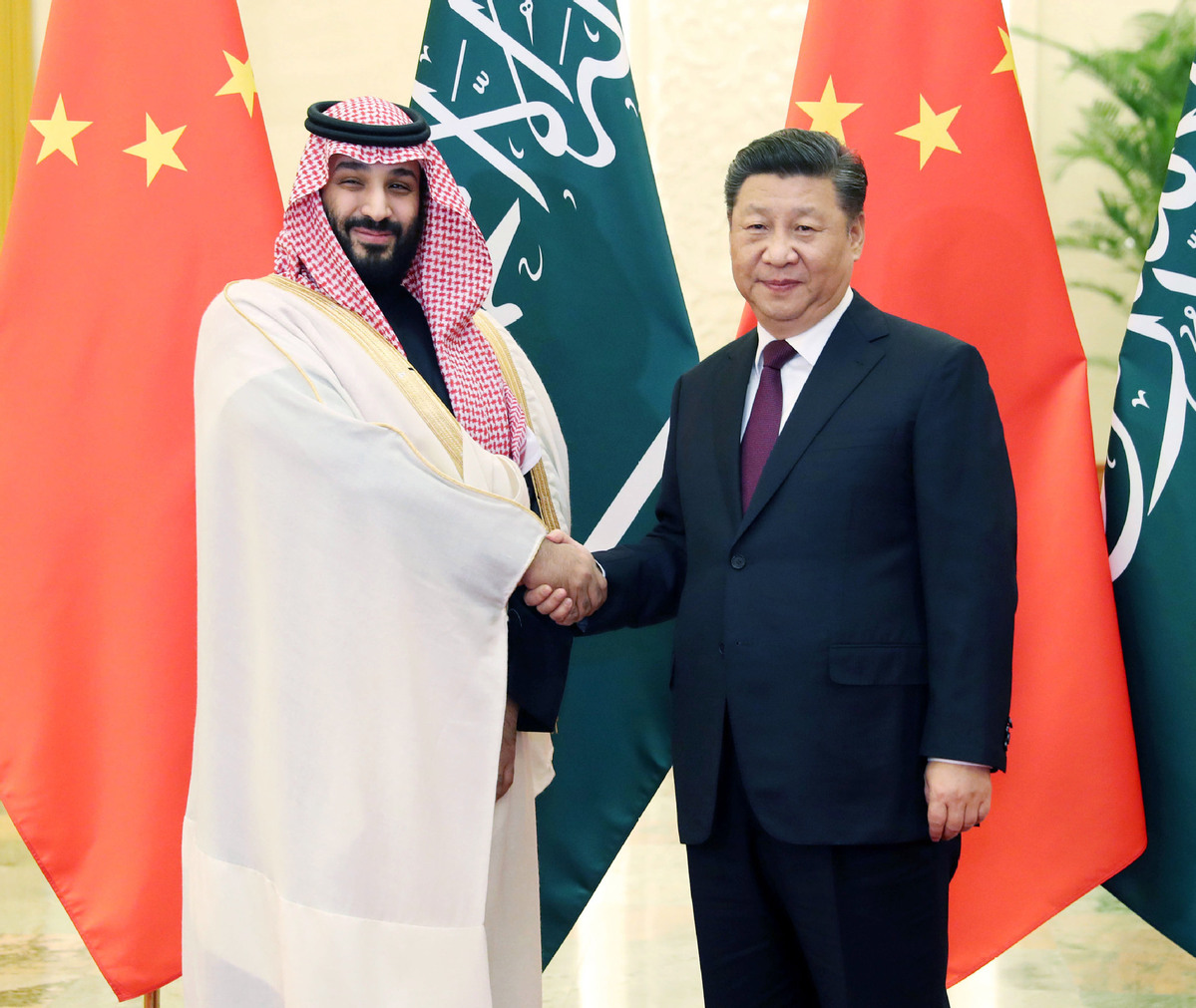New era in Sino-Saudi relations
By Zamir Ahmed Awan | chinadaily.com.cn | Updated: 2019-02-25 10:14

Although there exists a lot of interaction between China and Arabs, two old civilizations of the world, but last week’s visit of Saudi Arabia’s Crown Prince Muhammad bin Salman to China marks the beginning of new era where the political diplomatic, economic and defense relations are likely to reach new heights. “Saudi Arabia’s relations with China can be traced back to a very long time in the past,” Prince Mohammed told President Xi Jinping at their meeting in the Great Hall of the People in the heart of the Chinese capital. “Over such a long period of exchanges with China, we have never experienced any problems with China.”
Muhammad paid an official visit on February 21-22 to China, where he met Xi and senior officials. Muhammad was also accompanied with a high-level delegation of senior government officials and leading businessmen. It is almost two years since his father, King Salman bin Abdulaziz al-Saud, met with Xi during a tour of the region in March 2017. At the time, both sides agreed to "step up cooperation in all areas," according to Xinhua.
Saudi Arabia sends a huge number of its youth to China for higher education. After graduating from China, they go back to Saudi Arabia and promote China in Saudi Arabia. They understand Chinese language, culture and traditions, and serve as Chinese ambassadors for promoting friendship between China and Saudi Arabia.
Saudi Arabia is an oil-dependent economy but wants to reduce its dependence on oil as the renewable energy may reduce the importance of oil as a source of energy in the future. Also Saudi Arabia wants to diversify and widen its economic base. China is also willing to promote its economic cooperation with Saudi Arabia. China is a country which meets its energy requirements mostly by imported fuel. China has a very good experience of developing its economy and emerged as second largest economy of the world. China may help Saudi area to develop various sector of economy in Saudi Arabia. Muhammad was accompanied by a large group of businessmen including from Saudi Aramco. Both countries may cooperate in petrochemical sector as well as any sector of mutual interests. China is Saudi Arabia's largest trade partner, outstripping European nations and the United States. In 2018, imports from Saudi Arabia reached $46 billion. Citing a 33 percent increase in bilateral trade last year, the crown prince said high-level contacts paying off in areas from commerce to security and defense. The crown prince earlier Friday presided at a China-Saudi cooperation forum that concluded with agreements on cooperation in fields ranging from petroleum and the chemical industry to investment, renewable energy and counter-terrorism. Saudi Arabia is one of China’s top crude oil suppliers and an important market for its exports.
Saudi prince also supported China’s Belt and Road Initiative (BRI). Under Beijing's maritime silk route a huge amount of Chinese trade will pass through the Red Sea, which borders Saudi Arabia, on its way to Europe. Saudi's support to BRI is very much significant with most practical example of the Saudi investment in Pakistan under China-Pakistan Economic Corridor where Muhammad signed eight Memorandum of Understandings worth about $20 billion, including an oil-city in Gwadar. Under the changing geopolitical scenario, cooperation between Saudi Arabia and China is important. This cooperation may promote regional peace and stability.
Traditionally, the US was a major defense partner with Saudi Arabia, but Saudi Arabia wants diversification in meeting its defense needs. China can play a vital role in this requirement. Both countries may enhance cooperation in defense sector to satisfy each other’s interests. It is very much obvious, under changing geopolitics of the whole world, cooperation between Saudi Arabia and China will contribute to stability, peace and development of the two nations and regions.
Author: Prof. Engr. Zamir Ahmed Awan, Sinologist (ex-Diplomate), Non-Resident Fellow of CCG (Center for China and Globalization), National University of Sciences and Technology (NUST), Islamabad, Pakistan.
























